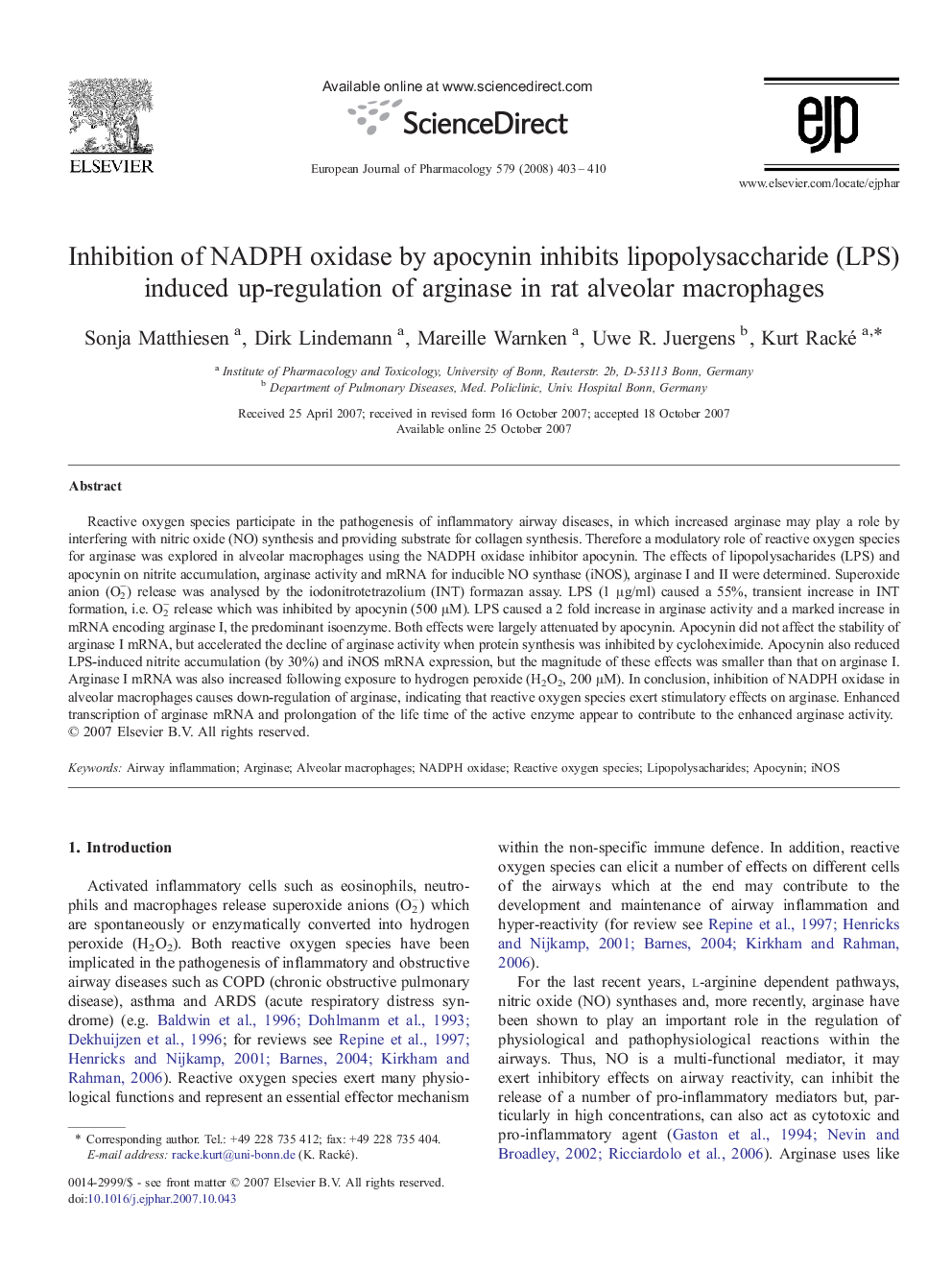| Article ID | Journal | Published Year | Pages | File Type |
|---|---|---|---|---|
| 2535580 | European Journal of Pharmacology | 2008 | 8 Pages |
Reactive oxygen species participate in the pathogenesis of inflammatory airway diseases, in which increased arginase may play a role by interfering with nitric oxide (NO) synthesis and providing substrate for collagen synthesis. Therefore a modulatory role of reactive oxygen species for arginase was explored in alveolar macrophages using the NADPH oxidase inhibitor apocynin. The effects of lipopolysacharides (LPS) and apocynin on nitrite accumulation, arginase activity and mRNA for inducible NO synthase (iNOS), arginase I and II were determined. Superoxide anion (O2−) release was analysed by the iodonitrotetrazolium (INT) formazan assay. LPS (1 μg/ml) caused a 55%, transient increase in INT formation, i.e. O2− release which was inhibited by apocynin (500 μM). LPS caused a 2 fold increase in arginase activity and a marked increase in mRNA encoding arginase I, the predominant isoenzyme. Both effects were largely attenuated by apocynin. Apocynin did not affect the stability of arginase I mRNA, but accelerated the decline of arginase activity when protein synthesis was inhibited by cycloheximide. Apocynin also reduced LPS-induced nitrite accumulation (by 30%) and iNOS mRNA expression, but the magnitude of these effects was smaller than that on arginase I. Arginase I mRNA was also increased following exposure to hydrogen peroxide (H2O2, 200 μM). In conclusion, inhibition of NADPH oxidase in alveolar macrophages causes down-regulation of arginase, indicating that reactive oxygen species exert stimulatory effects on arginase. Enhanced transcription of arginase mRNA and prolongation of the life time of the active enzyme appear to contribute to the enhanced arginase activity.
